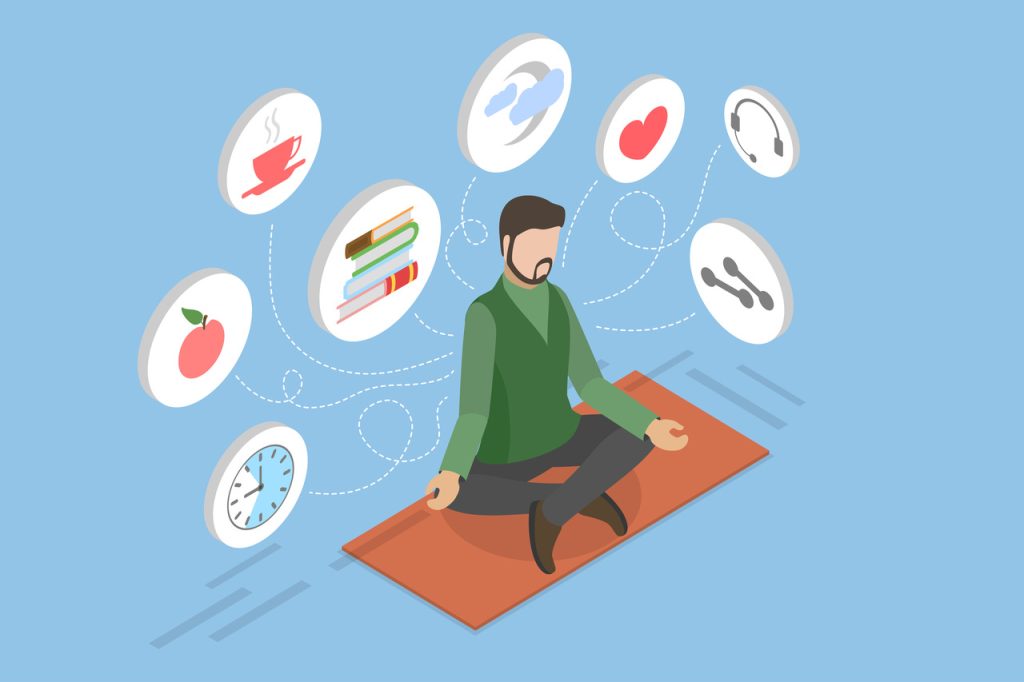Introduction
It usually starts quietly. Not with some big crisis or grand realization.
Some nights the house is completely quiet, everyone asleep and yet your brain just won’t stop. You lie there staring at the ceiling and your thoughts wander all over the places, like they’ve lost their way. Then your phone lights up, pings, notifications that don’t even matter, but they somehow make the night feel busier than it is.
I once spoke with a woman at a co-working space who said she didn’t even notice how worn out she’d become until a tiny notification blinked on her screen and asked, ‘Are you okay?’ She laughed when she told me, said it caught her off guard, but in a gentle way.
Not a person. Not a therapist. Just her app for mental health.
That’s kind of how this shift is happening. Slowly. Quietly. One check-in at a time. An AI wellness coach isn’t some futuristic robot giving therapy sessions. It’s more like a gentle nudge that shows up on your phone in the middle of everyday mess. And for many people, that’s strangely enough to get them to pause.
What is an AI Wellness Coach?
Imagine a tiny helper that fits right in your pocket. Don’t shout. Doesn’t make a scene.
These apps for mental health often feel like a quiet companion. You might check in while waiting for your tea to steep, or when your lunch break drifts a little longer than planned. It reads what you type, notices your routines, and over time, some people swear it starts getting them in ways that feel surprisingly real, almost like it’s quietly sitting there with you.
I’ve seen folks use it during their bus rides. Students, office workers, even a retired uncle who said it helped him “talk to someone” when nobody was around.
How it helps with daily habits, stress, and mood
It’s not about fixing everything at one go. That’s the thing people misunderstand.
What these tools usually do is track those little shifts you don’t notice. Mood swings. Sleep dips. That moment when you start skipping evening walks without realizing. And then it gently says, “hey, this is changing.”
You can talk to it after a bad meeting. Or log your thoughts when nothing big happened but something still feels off.
Some people use it like a diary. Some like a coach. And some, just to breathe slower for a few minutes.
The Role of AI in Mental and Emotional Health
See, earlier, mental health support was either a therapist’s office or nothing. Now it’s on the same phone where people scroll reels at 2 AM. This matters, especially in cities where a lot of young professionals live alone.
The mental wellness app becomes this low-barrier space. No judgement. No scheduling. Just tap and talk.
And then it does something interesting. It spots patterns faster than we do. A friend noticed how it flagged his sleep mood dip two weeks before he realized he was slipping into burnout again. AI doesn’t get tired of listening to the same complaint for the fourth time. That’s its quiet superpower.
From prevention to better mental wellness practices
When people think of “mental health,” they usually imagine reacting to a crisis. But what’s actually happening with these tools is early interception. Like noticing a leak before it floods the house.
The AI wellness coach doesn’t fix your life, no. But it creates space for you to notice your own life. A kind of mirror, slightly smarter, sometimes annoyingly accurate.
Benefits of Using AI Wellness Coaches
Over time, I’ve heard the same three things from users.
First, stress management. Because when the day spins fast, they can at least slow down for a bit.
Second, emotional support. Just having a place to unload without explanation is huge.
The way it works is quiet, barely noticeable. And then it nudges you toward tiny things. Drink water, stretch your arms for a minute, just simple stuff that you barely notice at first, but over time those little habits start to stay with you.
This is not shiny tech magic. It’s just persistence. Daily nudges.
Why TinyBit’s AI Wellness Coach Stands Out
Another step forward is connecting emotions with broader health. A string of “low energy” entries might mean fatigue, but paired with sleep data, it could suggest a pattern worth noticing. AI isn’t there to diagnose, it’s there to shine a light so you can decide what to do with it.
That’s when journaling stops being only emotional housekeeping and becomes part of overall well-being.
A quiet shift, not a revolution
The future of AI wellness coach technology won’t be loud. It won’t replace human warmth or therapy. It also helps you spot the small warning signs early, before things spiral. You don’t need some big meltdown to stop for a moment. Just pause. Breathe. See how you’re really doing. Just a brief pause. A few notes typed out. A question answered. Even just taking a slow breath.
Often, real change starts small. Not with big promises or resolutions, but with a gentle ping on your phone that says, “How are you feeling right now?” It’s barely noticeable, but somehow, it matters.




